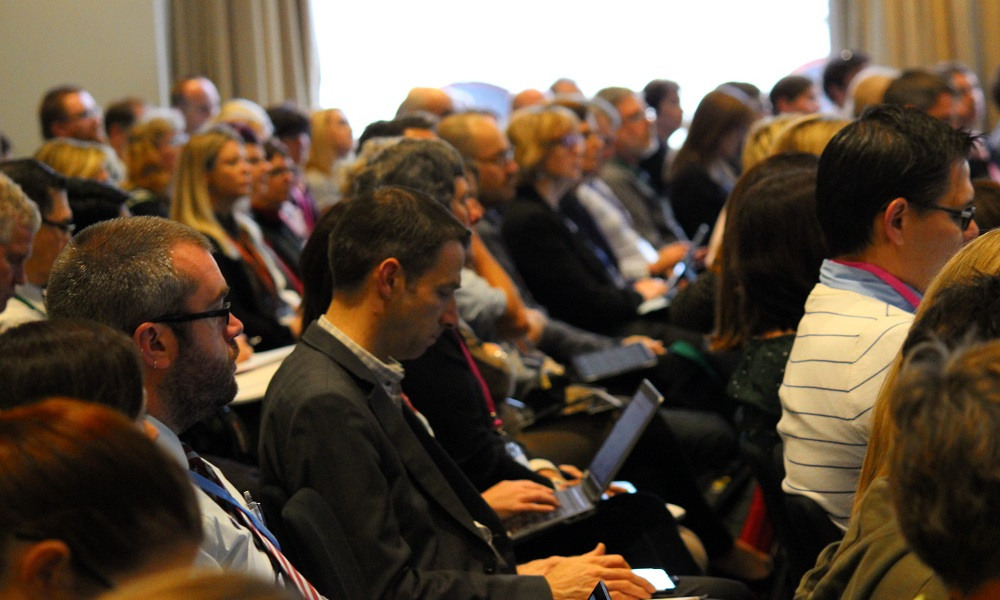Thank you for downloading this podcast, brought to you by Teacher magazine – I'm Jo Earp.
In this special episode we're looking ahead to next month's Excellence in Professional Practice Conference (EPPC), where teachers and school leaders are the presenters as well as the delegates. To whet the appetite, we'll hear from both keynote speakers – Professor Stephen Dinham and Professor Nan Bahr. And we'll share some of our favourite snippets from interviews with previous EPPC presenters exploring classroom wellbeing, school leadership, staff PD, closing student achievement gaps, and new ways of teaching and assessing maths.
Jo Earp: Professor Stephen Dinham will be delivering the opening keynote – titled Being a Leader of Learning and Teaching – at EPPC 2017, which is hosted by the Australian Council for Educational Research. Here, he gives a brief overview of the issues he'll be discussing.
Stephen Dinham: We know from international research that instructional leadership has a larger effect on student learning than other sorts of leadership, particularly some of the more managerial/administration types. So, one of the keys things that I stress is that being a leader of learning and teaching you need to understand the research evidence on that, so that leaders can work with staff in schools to identify priorities, plan for professional learning, put into place various changes and so forth. And it's very, very important to understand those strategies and approaches that have most impact and those that have lesser impact.
One of the things I will be talking about is some of the high-impact strategies for teaching and then how leaders can work with and through people in their schools to put these into place and then to monitor how they're going, to evaluate and to modify if necessary. So, it's very much an evidence-based approach to teaching and learning, with the leader being a key learner themselves.
Jo Earp: Professor Stephen Dinham there. This year's closing keynote will be delivered by Professor Nan Bahr. She'll be talking about the hidden qualities in quality teachers.
Nan Bahr: I'm very interested to try and open people's minds to the concept of the additional personal attributes that teachers bring to their engagements with students that make the difference for the learners and for the learning of those students. By additional, I mean those things that are above and beyond the basic competencies that we would expect of a professional.
... Things like cooperative and democratic attitude for example, makes sense in the schooling or classroom context in the way that a teacher would demonstrate being cooperative, providing opportunities for students to be cooperative and democratic in the way that they engage with their learning. Those sorts of things require a good understanding of the content, the curriculum, the learning outcomes as well, and I think that they can be learnt.
The other sorts of things are a sense of humour. I've known teachers that are as funny as, but basically what I'm meaning here in terms of personal attributes is someone that can bring a sense of humour out of the learning that they're hoping students attend to, so that they can actually find ways of bringing the concepts to life for students, bringing humour to bear.
So, I think they're both personal attributes but they're also professional attributes that we can pay attention to in the way that we develop teachers and the way we consider how effective they are as teachers.
JE: Okay, we're going to delve into the Teacher archives now with two presenters from EPPC 2014. First off, here's Neil Lloyd from Brisbane's Youth Education and Training Centre, talking about the starting point for school improvement in relation to students' literacy and numeracy skills gaps.
Neil Lloyd: We had a good look at our pedagogical framework - that philosophy on what we're doing and how we're implementing pedagogy in the classrooms. So, that was our starting point. We wanted to make sure that we had a common approach to teaching, something that we could articulate to new staff but something as well that was, in essence, based on research. … So, we wanted to have things like common unit and lesson plans, we also wanted to develop more of a team culture so that there's more sharing of ideas and more collaboration ... but we also wanted to develop resources that could be used within the school and beyond the school.
JE: In 2014, I also caught up with New South Wales principal Karen Endicott. Here she is talking about changing the leadership structure at Sarah Redfern High School.
Karen Endicott: What we needed was this structure of what I call managers. So, I have a Business Manager, I have an Operations Manager, I have a Strategic Planning Manager, I have a Curriculum Manager and I have a Student Wellbeing Manager. And they are now the team that drives every agenda that we're putting through. ... [For] every change agenda they are focused – they've got their target areas, they've got the outcomes that they have to achieve and they are driving, working with teams of teachers, because the teachers are the ones that make this happen. Unless you have them on board and committed to what you're doing then nothing will happen within a school.
JE: Two years ago EPPC was in Sydney and one of the presenters was Californian educator Amy Dugré, who shared the details of her school's in-house PD program and how seeing teachers learn also benefitted the students.
Amy Dugré: They see us learning during the school day, they come by a classroom where it's a classroom of teachers and they see their teachers engaged in the same work that we ask them to do. I think teachers sometimes lose sight of the fact that we ask children to work out of their comfort zone all the time and it's really great that they see that we're willing to do it too – that we put ourselves in the same position, same place.
JE: Mark Sivills was another presenter from 2015. One of the features of the maths peer assessment program at his Tasmanian school is double deadlines. Here he is, explaining how they work.
Mark Sivills: We set two deadlines. The first due date had specific things that we needed them to do – usually an attempt at each question, and we gave them a breakdown of what we expected for that first one. And then the second deadline was the one where they really submitted it, when it was expected to be a highly polished piece of work. So it was kind of like a drafting of maths work. So it's not something that usually happens – it might happen a lot in other Humanities subjects, but it was something that we were embedding in maths as well.
JE: Fast forwarding now to 2016. Here's a snippet from our Global Education podcast episode with Dr Kevin Anthony Perry, who ran a workshop at EPPC about his research into student wellbeing in Danish classrooms. Here, he shares one teacher's approach to building trustworthy relationships.
Kevin Perry: … She stands there, she's got the iPad, middle of the class, and she starts reading out every single kid's name … ‘Emile – how did it go at football yesterday? Sarah – how's your horse? Jamie – how's your father, he's been ill lately?' She's got this very small, 10 second window with every single child in the class. It's something she prioritises and it's something that builds up an individual contact with every single child, but at the same time she's building up the full class contact.
JE: Nikki Urlich, from Campbells Bay School in New Zealand, was another international presenter last year – talking about a collaborative project called Modern Maths. She explains student voice is one of the important ingredients of this successful program.
Nikki Urlich: In terms of student agency, when we teach and learn maths we believe that students need to own the learning and the assessment. So students are actually assessing themselves, looking at the progressions, highlighting where we need to be – and I'm talking eight- to 10-year-olds. And what they have within this mathematics program is a lot of voice and choice.
JE: Nikki Urlich there. Now, as we've heard today, one of the great things about EPPC is the fact that school leaders and teachers are the conference presenters, as well as the delegates. Well, let's return then to 2017 keynote Professor Stephen Dinham. I asked him what the benefits are of giving educators this kind of stage on which to share their work.
SD: We're working with a lot of schools that are making real progress in terms of an evidence-based approach and in terms of improving teaching and learning. I think this empowers schools, it empowers teachers. When they can actually see that they are being part of a process of developing an approach, putting it into place and modifying it and doing all of those sorts of things, it really is quite empowering. And I think when people start to see the ‘fruits of their labour', if you like, if they start to see measurable gains in students' outcomes, I think this is a very strongly motivating force.
The other part of it is that there's a lot of work that's being done in schools which is done almost in a hidden fashion – it's not shared with anybody else. You have a lot of reinventing of wheels in education and there's a real imperative, I think, to share best practice. It's not always a recipe that you can sort of immediately adopt, but you can certainly adapt.
JE: The Excellence in Professional Practice Conference 2017 takes place on the Gold Coast on 25 and 26 May. Visit www.acer.org/eppc to register and download the full program. The Teacher team will be there, posting live updates via Twitter – our handle is @teacherACER. And, stay tuned for future articles, podcasts and videos featuring EPPC 2017 presenters.
That's all for this special episode. To keep listening or to download all of our podcasts for free, visit acer.ac/teacheritunes or www.soundcloud.com/teacher-ACER. To access the latest articles, videos and infographics from Teacher visit www.teachermagazine.com.au.
Professor Stephen Dinham says leaders need to be learners too. As a school leader, how do you keep up to date with evidence on high-impact strategies for teaching?
Dr Kevin Anthony Perry shares an example of good practice from Denmark for improving classroom wellbeing. As a teacher, how are you building trustworthy relationships with your students?
Amy Dugré talks about utilising existing staff skills to run a sustainable, in-house PD program. What skills do you have that you could share with colleagues?



